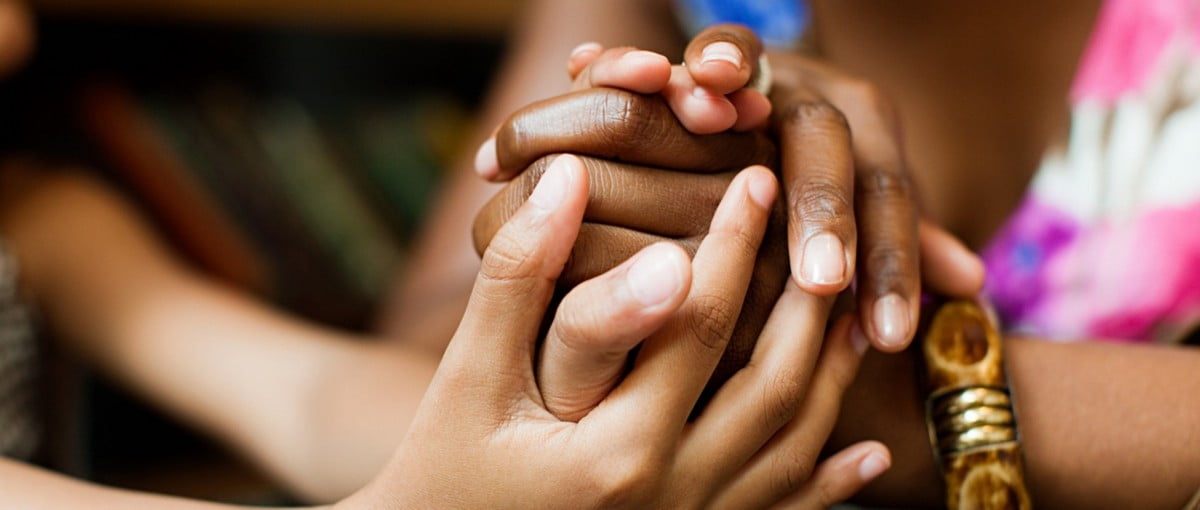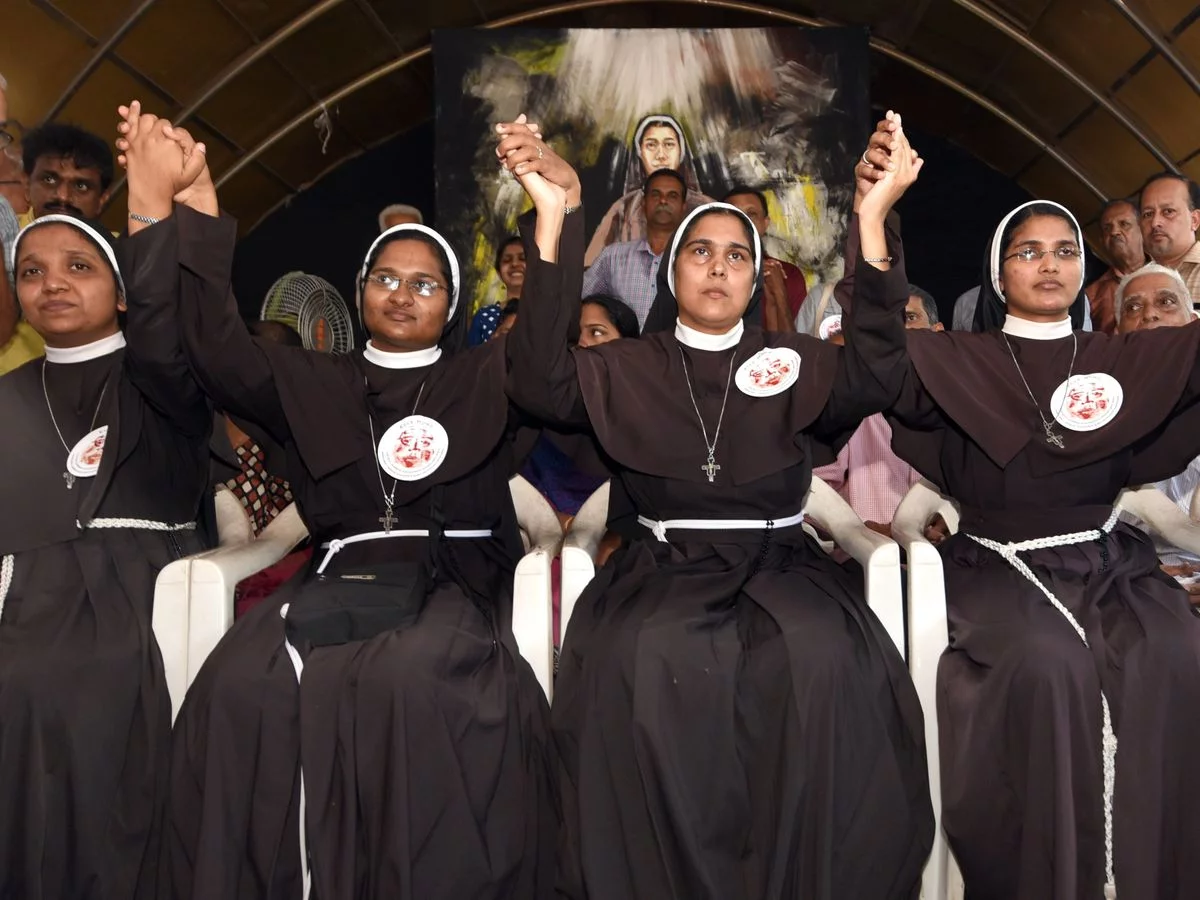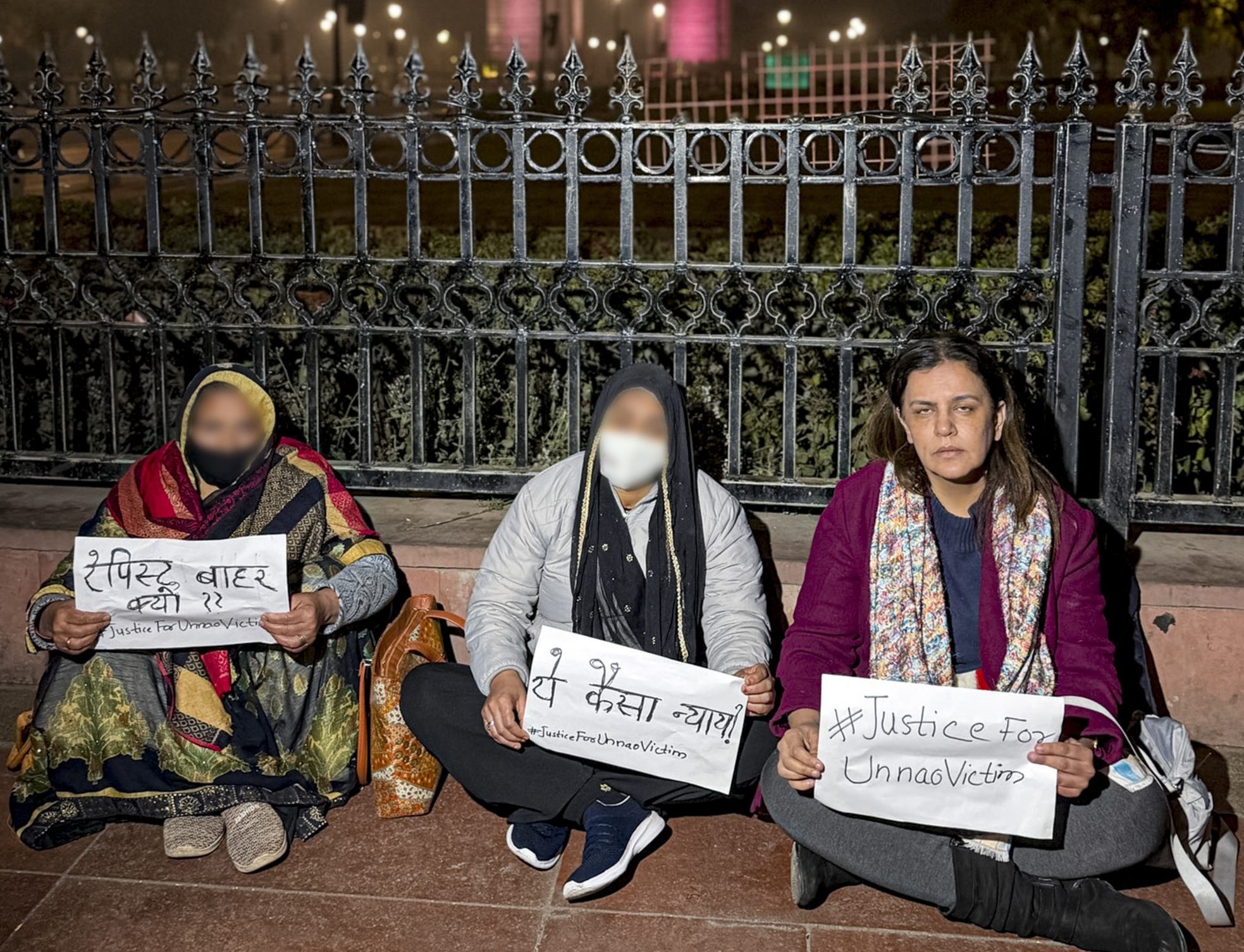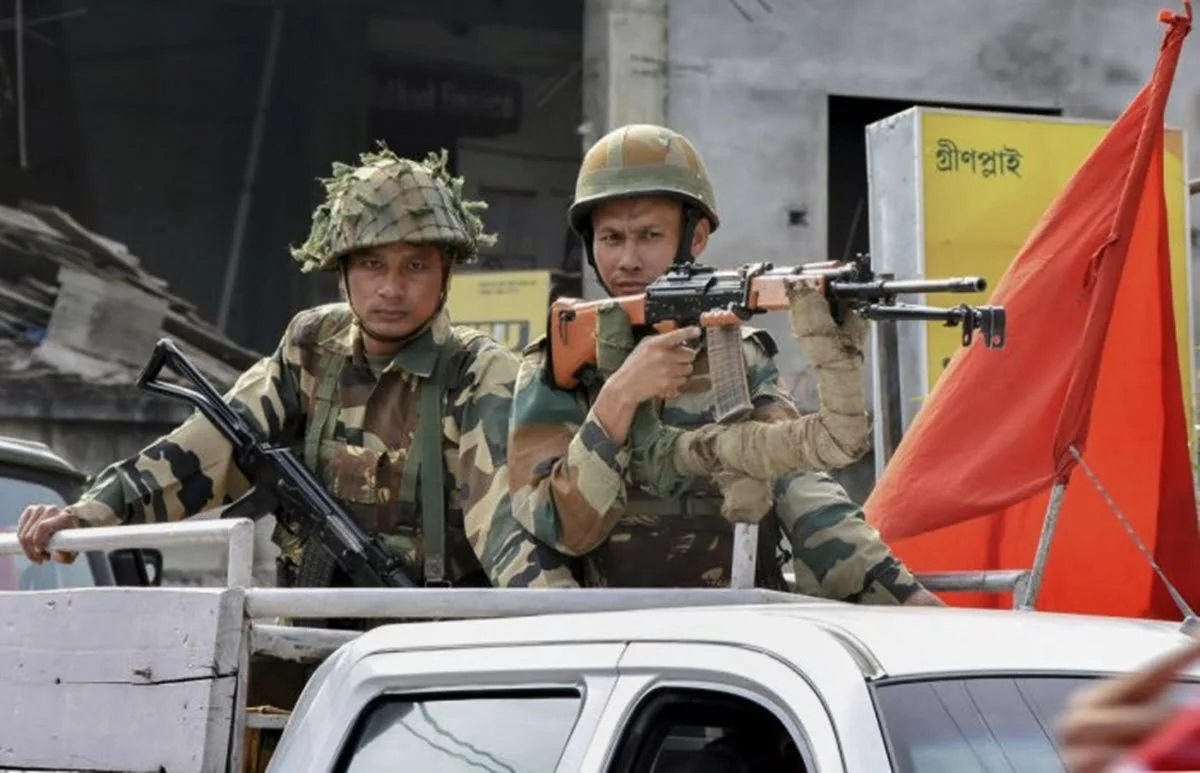I was born to a Savarna middle-class family (these two categories almost always tend to overlap) in 1994. I come from the city of Lucknow – a city known for its politeness, humility and nawaabiyat. My father worked as a banker who was known for his ruthless honesty and my mother is also well qualified for any woman of her generation (owing of course to her caste privilege) but she never ended up working (owing of course to her being a woman).
One of my first memories of childhood is my father flinging his heavy steel dinner plate at the wall during dinner. My mother was serving him rice, along with arhar dal and probably some aloo ki sabzi. My father had got annoyed about my mother’s argument with me. The thick steel plate got bent from one side, always a reminder in the kitchen of our father’s tendencies.
Another time I very vividly remember was when he ran after us with a knife in his hands. We frantically ran to our room, banged the door shut on his face and immediately ran to shut the back door lest he should find his way through it. The ‘fight’ as he would later call it (and assault as I would want to term it), could be about anything. It could be about my mother telling him that there wasn’t enough money to run the house, or maybe that the food was not cooked as well as he wanted.
The entire neighbourhood knew that the situation in our family was rotten, that our father was this short-tempered man, but nobody ever intervened. He used to make sure that all of our windows and doors were shut when ‘anger’ struck him. Nobody knew but everyone knew. There were times when we almost called the police. It didn’t matter though because we started pitying him – the man with the knife.
I remember when I was around 11 years old, I hesitantly confided to my friend that my mother’s pillow was wet when I woke up in the morning beside her. My mother was crying herself to sleep day after day after day. I remember how I was mocked by the girls of my class afterwards. My 11-year-old self regretted it quite a bit. I realised it wasn’t something you talked about, though to be quite honest, I was a tad bit surprised that none of my ‘friends’ had such a story to tell. I thought this happened in all homes!
Nobody knew but everyone knew.
When I was 17, I came back from a tuition class to find him threatening my grandmother. He was asking my mother to get out of his house. I collected my books, my brother who was 11 years old at that time, my mother, grandmother and walked out of the house. We spent the night at my grandmother’s house which was under construction. The only chair there was used by my grandmother to sit on.
Out of fear of questions from classmates, I stopped going to school or tuitions and switched my mobile off. We spent the next few months away from my father after which the parents had to reconcile only because of the children and our financial dependence on him. In my mind, I noted the two most important things for any woman’s easy release from an abusive marriage – 1) absence of children and 2) financial independence.
Cut to when I was 18 and my elder sister 23 and about to enter into a love marriage with a guy (who she is now about to divorce – that comes later). Father twister her wrists and hit her head with a slipper a week before her marriage – not the sight we get to see in movies, eh? When I cried, yelled, wept and sobbed and lost my mind over this, my father explained it to me later by apologising and saying, “beta, ladayi jhagdga toh har kisi ke ghar mein hota hai” (child, every family fights).
When I got to know about this, it left some sort of an indelible impact on my mind which I only later realised. I was diagnosed with clinical depression and anxiety in 2017, at the age of 22. The only thing I could repeat was that he apologise to my sister for what he had done 4 years ago. He said that he had punished her for not doing the right thing and that this happened in every house.
5 years after my sister willingly walked into a marriage with her boyfriend of 3 years, she realised that she had married a 28-year-old version of my father. He harassed her, repeatedly asked her to leave the house, had bouts of extreme insecurity that made it difficult for her to hang out with any man whosoever. There was both physical and emotional violence. I was sent pictures of her face with red marks.
Also Read: It’s 2018. Will We Speak Up Against Family And Community Violence?
My father condoned it initially, saying it was a family affair. Then, his way of solving the issue was by threatening the brother-in-law to stay in the marriage. He didn’t know that that is not how relationships function. Now that talk of a divorce started doing the rounds, he hit my mother and threw my brother and her out of the house.
My therapist told me that I don’t emote much while recounting incidences of abuse. Well, it is quite hard to emote at every incident of emotional and physical assault. I had ruined my relationship with a boyfriend by being abusive (so was he but that is another tangent). I had never known that anger could be expressed non-violently. I have also hit my current boyfriend. It has taken a lot to unlearn my given impulses.
None of us want to take after my father. My therapist told me that my father is most probably suffering from an undiagnosed mental illness. It did not come as a surprise, and I did not realise a lot of it until I started reading about gaslighting. He used to say terribly abusive things and later deny it.
He could spend hours stuck on a single thought and make-up stuff that never happened only to blame my sister and mother. We could tell him to consult a therapist except it would result in a violent response. Traces of these patterns are found in all of us as well. We have to be acutely self-aware to not turn into abusers.
My sister’s marriage counsellor told her that her husband was not mentally stable. The irony is that her husband had been calling her insane and mad since the very beginning of their marriage. The worst part is that my sister is the one who does not want a divorce. She wants to be in the abusive marriage even after all the assault because she feels unstable and rootless without it.
I had never known that anger could be expressed non-violently.
When my father mistakenly got to know about my depression, he asked me why on earth I was I depressed? Every house has its fights, why do I have to take it so seriously? He further pestered me with questions asking if I had talked about his behaviour with my friends. If he knew it was normal, why be ashamed of it?
My mother has spent her life trying to safeguard us from his temperament and her pained response at my deteriorating health was the only validation I got from my parents regarding my illness. I had to list these incidents out to some friends for them to tell me that this was not normal. I was not overreacting.
I did need some of the empathy being showered on me even though it repelled me after a point. I was also told that I must listen to my father, must not be angry at him, must feel pity for him but I am not sure if it is possible for me to do that yet.
Forgiving the abuser is not a phrase to toy around with. It means undoing and unlearning your reflex actions, learning to trust people again and it can be a traumatic process. Do not let anyone define your anger for you. Do not let people tell you how to feel about your experiences.
There are thousands of stories by women who will never get a chance to speak out and it pains me. It pains me that women choose to be in abusive relationships thinking that they are the ones at fault, putting up with domestic abuse and marital rape. All we feminists have ever wanted is that the world be a little kinder and softer and that seems too much to ask for even today.
Also Read: Secret Superstar Review: Much Needed Conversation On Violent Families
*Not an economic category as much as it is a sociological category.
Featured Image Credit: Medium




